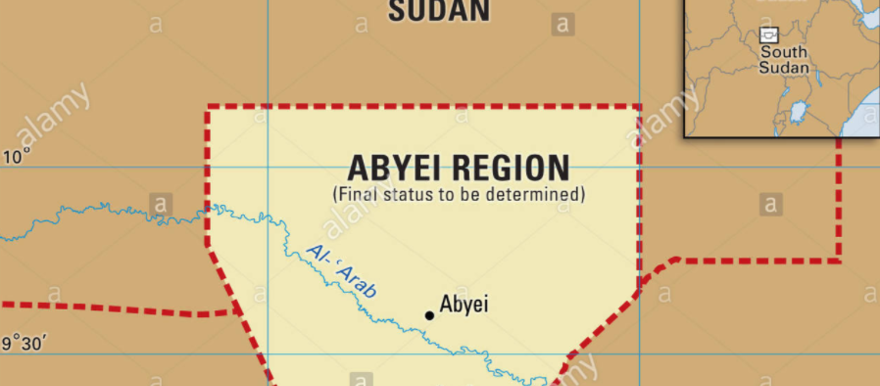The committee formed by President Salva Kiir in May to dialogue with Sudan over the final status of the disputed Abyei region last week concluded three-day consultative meetings with chiefs, youths, and women groups in Abyei ahead of talks between the two countries.
Justice Deng Biong, the spokesman for the committee, described the consultations as interactive and said the people had the same views as the committee.
"The consultation was so positive, people reacted to ideas that we presented to them and also they expressed what they thought should be included or should be the position of the committee. So, it was a good exchange,” Justice Biong said. “We realized that our positions were not parallel and we were almost saying one thing.”
He added: “We are waiting to go to Khartoum whenever they form their committee. The committee is now back in Juba and we will brief the leadership and we will wait for the mutual meeting between us and the delegation Khartoum has organized.”
Meanwhile, the Abyei Paramount Chief, Bulabek Deng Kuol, said the long-awaited final status of Abyei is on everyone's mind and that it was clear the area belongs to South Sudan.
"We the chiefs of Abyei and all nine Ngok chieftains know the reality of Abyei since it was administratively annexed to Khartoum. It was not alone as other areas in Southern Sudan like Twic, Pan- Ruweng, and Nuer tribes were also annexed until all were returned to Southern Sudan in 1931 but Abyei remains there until now,” Paramount Chief Kuol said. “It was not the community of Abyei or the nine Ngok-Dinka chieftains that were annexed to Kordofan, Sudan. No. The community of Abyei lives here (Abyei) and it was only the administration that was moved to the north."
Abyei, an oil-rich area, was administratively annexed to Kordofan, Sudan in 1905.
The Abyei Area is an area of 10,546 square kilometers on the border between South Sudan and the Sudan that was been accorded "special administrative status" by the 2004 Protocol on the Resolution of the Abyei Conflict (Abyei Protocol) in the Comprehensive Peace Agreement (CPA) that ended the Second Sudanese Civil War. Under the terms of the Abyei Protocol, the Abyei Area was considered, on an interim basis, to be simultaneously part of both the Republic of South Sudan and the Republic of Sudan.
When the South Sudan People's Liberation Movement (SPLM) signed the Comprehensive Peace Agreement (CPA) in 2005 in Kenya, Abyei was claimed by both the SPLM and the then Sudanese National Congress Party (NCP) led government in Sudan.
For peace to prevail and for the CPA to hold, the Abyei Protocol prescribed that the people of the area would have the plebiscite to determine which country they would belong to, but it was not honored in 2011 after the independence of South Sudan.
In October 2013, more than 99 percent of Abyei’s Ngok Dinka residents voted in favor of joining South Sudan, according to the committee that organized the unilateral and unofficial vote.




